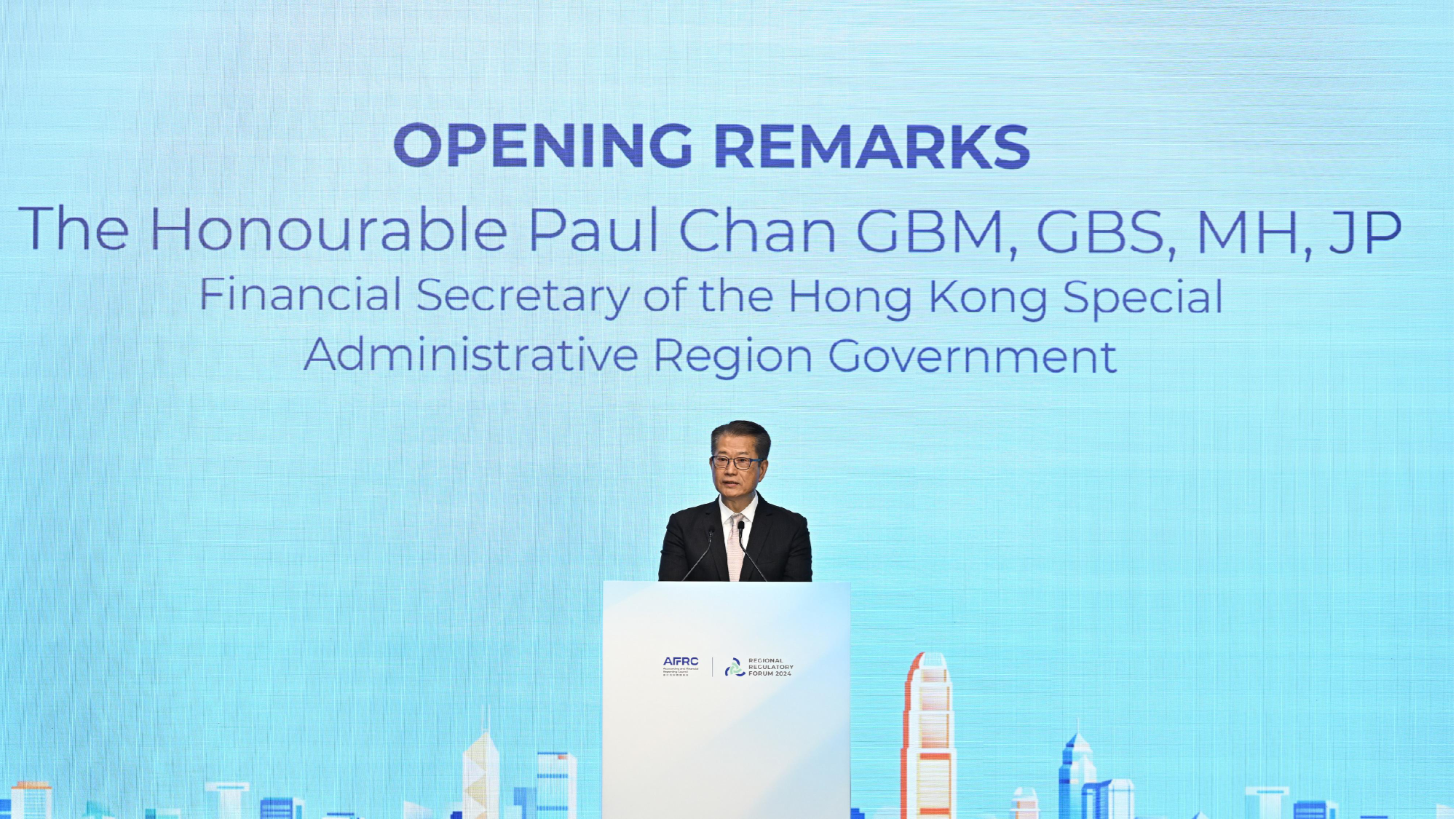
Financial Secretary Paul Chan Mo-po said the government of the Hong Kong Special Administrative Region will formulate measures and financial arrangements to achieve a balanced government budget in the next few years.
“Facing the uncertain external economic environment in the coming year, the government will continue to review the level of revenue, expenditures and fiscal reserves for deploying measures to achieve a balanced budget based on the current and long-term needs of society,” Chan said at the Legislative Council Financial Affairs Panel on Monday.
After taking into account the proceeds from bond issuances and the repayment of due amounts, the finance chief preliminarily estimates that the consolidated budget deficit in the 2024-25 financial year will reach about HK$100 billion ($12.82 billion), which is more than twice the amount given in the original forecast of HK48.1 billion made in February.
READ MORE: Funding for HK’s one-off relief measures drops over 80%
In delivering the Budget 2024-25, the SAR proposed a comprehensive fiscal consolidation program to control the growth of government expenditures, increasing revenue and issuing government bonds, to achieve a balanced budget.
“Profit tax revenue and the property market stamp duty are affected by the depressed asset market due to geopolitics and the slowing down of the global economy,” Chan said, adding that the administration will continue investing resources to consolidate the economic growth momentum and improve public services, as well as accelerate the development of the Northern Metropolis, and other economic and housing developments.
Even after bond issuances in recent years, Hong Kong's debt-to-gross domestic product (GDP) ratio will only increase from about 6.5 percent at the end of March this year up to 14 percent, which is still relatively prudential compared to the world's developed economies, Chan added.
Regarding the Hong Kong economy, the SAR government revised the GDP forecast for 2024 to the lower forecast range of 2.5 percent because of the longer high interest-rate environment and geopolitics that will affect capital flows and asset markets. But the finance chief expects that the Chinese mainland’s measures to boost the economy will benefit different economic sectors in Hong Kong.
“The United States’ proposed tariff policy will disrupt global trade and investment and trigger supply-chain disruptions in other economies. This will affect Hong Kong's exports, especially the mainland's re-exports to the US,” Chan said.
He also said that, as the new US government is expected to implement expansionary fiscal policies, this may slow down the pace of interest rate cuts. The Hong Kong dollar will remain strong for longer due to the currency peg with the US dollar, Chan said, and this will affect the attractiveness of Hong Kong’s goods and services, possibly depressing domestic consumption and the number of visitor arrivals.
READ MORE: Chan: HK determined to restore fiscal balance in 3 years
Meanwhile, Clara Chan Ka-chai, chief executive officer of Hong Kong Investment Corp, said the HKIC’s current investment amount is at least twice that of last year, and it has invested in more than 80 projects.
“Based on geographical category, the Chinese mainland, Hong Kong, and other regions accounted for 42 percent, 36 percent and 22 percent respectively. The sovereign wealth fund in the future may invest in projects originating from ASEAN (Association of Southeast Asian Nations), the Middle East and Europe,” Chan said in the LegCo panel meeting.
The HKIC CEO expects the investment fund size under the New Capital Investment Entrant Scheme (CIES) to be raised from HK$300 million to HK$450 million. Under CIES, applicants must invest HK$3 million into the investment portfolio managed by HKIC in companies or projects, related to the innovation and technology industries and other strategic industries in Hong Kong.


